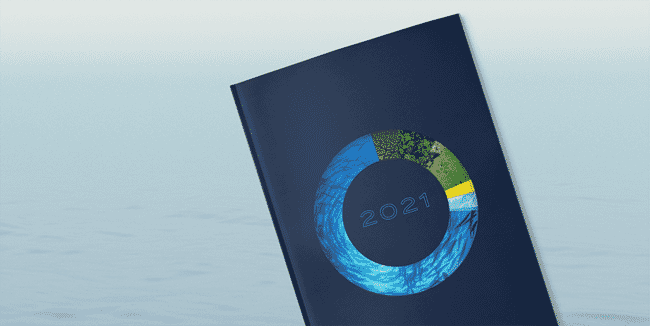
To make these reductions a reality, BioMar has developed a long term masterplan focusing on operations and broader supply chain partners to create innovative solutions that make sustainability profitable. © BioMar
The IPCC has stated that greenhouse gas (GHG) emissions need to halve by 2030 and reach net-zero by 2050 to avoid the worst effects of climate change. To achieve this vision, private and public entities must follow an alignment of reductions to keep global warming to less than 1.5°C.
“As aquaculture feed represents around 80 percent of the carbon footprint of farming, it is essential to our farmers that BioMar makes a strong commitment and accelerates the drive to net-zero. In this year’s Sustainability Report, we lay out in detail our reduction pathway while disclosing where we are today. We thoroughly explain the robust scientific methodologies and reporting systems that we are using,” stated Vidar Gundersen, global sustainability director, BioMar.
In last year’s Sustainability Report, BioMar announced an ambition to reduce GHG emissions by one-third by 2030. To make this reduction a reality, BioMar has developed a long-term master plan focusing on operations and broader supply chain partners to create innovative solutions that allow us to reach our reduction targets. The new report states that in scope 1 and 2, a 4.2 percent year-on-year absolute GHG emissions reduction target will be achieved, while a 30 percent reduction in scope 3 is required.

© BioMar
The SBTi is a programme for driving and validating ambitious GHG reductions in the private sector. More than 2,200 organisations have committed to the SBTi, representing one-third of the global market capitalisation.
Circularity and restorative practices are the themes for this year’s Sustainability Report with numerous examples of upcycling and novel ingredients that will play a major role in the sustainable future of the aquaculture industry. BioMar has a strong focus on people and communities in this year’s report. Together with the launch of the new 2030 ambitions and a revised Code of Conduct, a strong commitment has been made in the areas of responsible pay, capacity building and diversity and equality.




